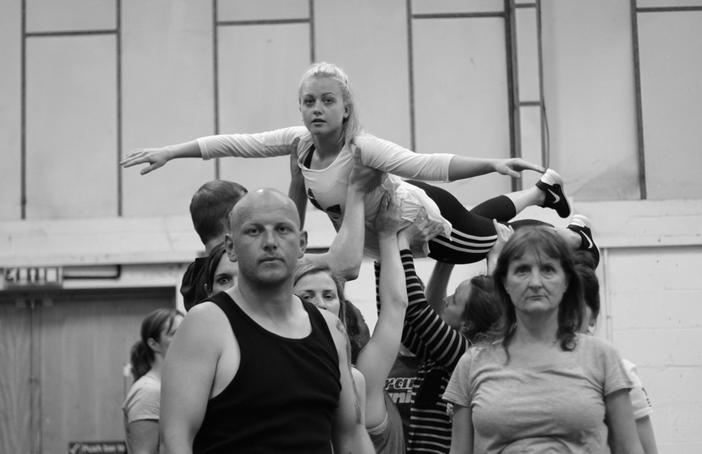Blog Post
Deep Roots Tall Trees - supporting community ownership in the arts
Andrew Ormston, Critical Friend to Made in Corby, looks at how the project is moving beyond co-creation to community leadership

Just how far can you go with community leadership when it comes to creating art? This is the question at the heart of Made in Corby, a Creative People and Places (CPP) programme that is looking to move beyond co-creation to community ownership. After all what makes a project a project is that it stops happening at some point, so laying foundations for community-driven legacy makes sense when the arts funding show leaves town. It also makes sense when you are working in an area with very low arts engagement. The chances are that this results from reasons that extend beyond access and audience reach, and into what the work means to local people. Even if the primary barrier was access at one time, overcoming a long term lack of arts engagement means giving primacy to involving people in whatever way that works.
Made in Corby laid down some big markers in its first year. Barb Jungr, the Royal Philharmonic Orchestra and a concert in a football field was a major statement of intent as was Deep Roots Tall Trees, a community music initiative that is as impressive as it sounds. Great as these and other initiatives were, the first year evaluation suggested that even though 30% of our audience were new to Corby’s box office, we weren’t making enough progress on broadening arts engagement and there was a need to push the community leadership envelope a bit further.
The answer came from integrating the work of two different sectors. The idea of young people ‘taking the lead’ is tried and tested, and The Core at Corby Cube, the town’s new(ish) cultural hub had used this approach in the ‘Priority’ project where young people mapped their local arts opportunities, and a series of young people’s arts panels were used to devise and select projects. Made in Corby is unusual in that the lead organisation is Groundwork Northamptonshire, with limited experience in the arts, but highly skilled in devising work with the local community. When the learning from the Priority Project came together with Groundwork’s experience the Made in Corby Big Ideas Panel resulted, providing a platform for local community members and arts ‘experts’ to commission, and a model for a panel to develop a community musical, Danny Hero.
The panel shortlisted four proposals for the musical that were pitched to an audience of local people. However the structure of the panel meant that professional and artistic opinion trumped the local response, and this has led to some rethinking of how to implement this approach with stronger community leadership.
Made in Corby is now well on the way to establishing five community commissions in the area, each one a result of a local callout, and devised, led and delivered by a community panel. Panels include:
- residents of a recent housing development that tends to be overshadowed by more established residential communities
- a residential group of people with learning disabilities and the staff that work with them
- a parks friends group
- the community group of one of the town’s major employers
The scope of the emerging projects respond directly to their context. This includes work that offers an immersive and multi-sensory experience to people with different types of learning disability, as well as large scale outdoor events and work with local biodiversity. A call for artist mentors to advise on options for art form and practice as well as providing a wider sharing of the work has received over 20 applications. The process is now focused on supporting panels to develop their ideas, beginning with what they are interested in, who they want to involve, and what they want to achieve.
Made in Corby is already seeing unforeseen pathways of engagement emerging, such as participants in the Deep Roots Tall Trees project being inspired by the scale and quality of the work into coming forward with project proposals. We will be tracking the impact on participants over the longer term and have developed, with the support of the University of Northampton, an evaluation process that captures personal and social value.
We need to share what we learn across the network of CPP projects and the wider sector, particularly around central issues like artistic quality assurance and how to ensure inclusive community ownership. Other CPP projects are also exploring community leadership and ownership, offering intriguing prospects for future collaboration and learning.







